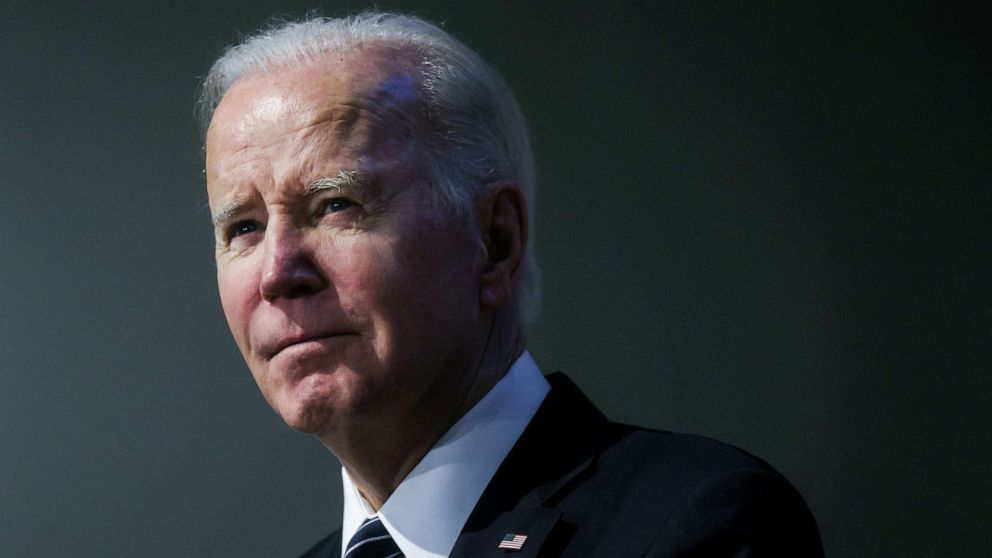预计乔·拜登总统将很快首次行使否决权,以挽救劳工部一项与ESG投资。
这项规定让退休计划经理在投资决策中更容易考虑气候变化和其他环境、社会和治理原则,被国会共和党人称为“觉醒”,他们认为这不公平地惩罚了石油和天然气等特定行业。
白宫反驳称,该规则“反映了成功的市场投资者对ESG潜在积极影响的了解”,旨在消除前任政府设置的障碍。
参议院周三以50比46的票数推翻了这项新规定。两名民主党人——西弗吉尼亚州的乔曼钦和蒙大拿州的乔恩特斯——加入了共和党人的行列,支持这项决议。众议院此前在周二以216票对204票批准了该法案,缅因州民主党人贾里德·戈尔登加入了共和党。
白宫表示,拜登将否决这项决议。这将标志着在民主党控制的国会执政两年后,他首次不得不行使总统权力。
鉴于该决议本周在国会获得通过的优势,它不太可能再次获得绝对多数票的批准。
“总统将继续为美国工人服务。如果总统收到H.J. Res. 30,他会否决,”白宫在本周早些时候的一份声明中说。

2023年3月1日,乔·拜登总统在华盛顿特区国土安全部成立20周年纪念仪式上发表讲话。
莉娅·米利斯/路透社
参议员迈克·布劳恩。根据国会审查法案,他将该决议提交给参议院,以绕过参议院的60票阻挠。在周三的发言中,布劳恩称劳工部的规定对联邦政府来说“走得太远了”。
怀俄明州共和党参议员约翰·巴拉索(John Barrasso)将ESG描述为“激进左翼的骗局”,以推动自由主义议程。
特斯是对参议院决议投赞成票的两名民主党人之一,他发表了一份声明,解释他为什么支持废除该法案。
“在工薪家庭面临从医疗保健到住房等各种费用上涨的时候,我们需要专注于确保蒙大拿州人的退休储蓄有尽可能坚实的基础。我反对拜登政府的这一规定,因为我认为它破坏了工作的蒙大拿州人的退休账户,并且对我的州来说是错误的。
白宫新闻秘书郭佳欣·让-皮埃尔在参议院投票前的每日简报会上指责共和党人将他们的意识形态“灌输给私营部门,并给投资者戴上手铐”
“这对总统来说是不可接受的,”她说。这就是为什么如果这个法案真的到了他的办公桌上,他会否决它。拜登总统致力于保护工人辛苦挣来的积蓄和养老金。这就是他将继续做的事情。"
马萨诸塞州参议员伊丽莎白·沃伦。,在发言中还回击说,共和党人正在将退休人员置于他们“完全虚构的文化战争”之中。
“这与意识形态偏好无关。参议院多数党领袖查克·舒默(Chuck Schumer)表示:“这是为了让投资者看到尽可能大的图景,以最小化风险,最大化回报。”他指出,许多领先公司已经发布了ESG报告。
劳工部的规定于1月30日生效。该机构表示,这是为了消除特朗普政府期间实施的ESG投资壁垒,并将使退休储蓄和养老金“更具弹性”。
白宫表示,该规定不是强制性的,反映了来自金融服务公司、计划参与者等900份书面意见和2万个签名的反馈。
Biden poised for 1st presidential veto in newly divided Congress
President Joe Biden is expected to soon wield his veto power for the first time to save a Department of Labor rule related toESG investments.
The rule, which makes it easier for retirement plan managers to consider climate change and other environmental, social and governance principles in their investment decisions, has been dubbed "woke" by congressional Republicans who argue it unfairly penalizes certain industries like oil and gas.
The White House has countered that the rule "reflects what successful marketplace investors already know" about the potential positive impacts of ESG and is meant to remove barriers put in place by the previous administration.
The Senate voted Wednesday to topple the new regulation, 50-46. Two Democrats -- West Virginia's Joe Manchin and Montana's Jon Tester -- joined Republicans in approving the resolution. The House previously approved it on Tuesday in a 216 to 204 vote, with Maine Democrat Jared Golden joining the GOP.
Biden will veto the resolution, the White House said. It will mark the first time he's had to use the presidential power after two years of a Democratic-controlled Congress.
Given the margins the resolution passed through Congress this week, it is unlikely to be approved again by veto-proof majorities.
"The President will continue to deliver for America's workers. If the President were presented with H.J. Res. 30, he would veto it," the White House said in a statement earlier this week.
Sen. Mike Braun, R-Ind., brought the resolution to the Senate floor under the Congressional Review Act to bypass the 60-vote Senate filibuster. In floor remarks on Wednesday, Braun called the Department of Labor rule "a step too far" on the part of the federal government.
Sen. John Barrasso, R-Wyo., described ESG as a "scam by the radical left" to push a liberal agenda.
Tester, one of two Democrats to vote yes on the Senate resolution, issued a statement on why he was supporting the repeal.
"At a time when working families are dealing with higher costs, from health care to housing, we need to be focused on ensuring Montanans' retirement savings are on the strongest footing possible. I'm opposing this Biden Administration rule because I believe it undermines retirement accounts for working Montanans and is wrong for my state," Tester said.
White House press secretary Karine Jean-Pierre, at the daily briefing ahead of the Senate vote, accused Republicans of forcing their ideology "down the throats of the private sector and handcuffing investors."
"This is unacceptable to the president," she said. "And that is why he will veto this bill if it does come to his desk. President Biden is focused on protecting workers' hard earned life savings and pensions. And that is -- that is what he's going to continue to do."
Sen. Elizabeth Warren, D-Mass., in floor remarks also fired back that Republicans are placing retirees in the middle of their "wholly made up culture war."
"This isn't about ideological preference. It's about looking at the biggest possible picture possible for investors to minimize risk and maximize returns," Senate Majority Leader Chuck Schumer said, noting that many leading companies already publish ESG reports.
The Department of Labor rule went into effect on Jan. 30. The agency said it was to remove the barriers on ESG investments put in place during the Trump administration and would make retirement savings and pensions "more resilient."
The White House has said that the rule is not a mandate and reflects feedback from 900 written comments and 20,000 signatures from financial service companies, plan participants and more.






